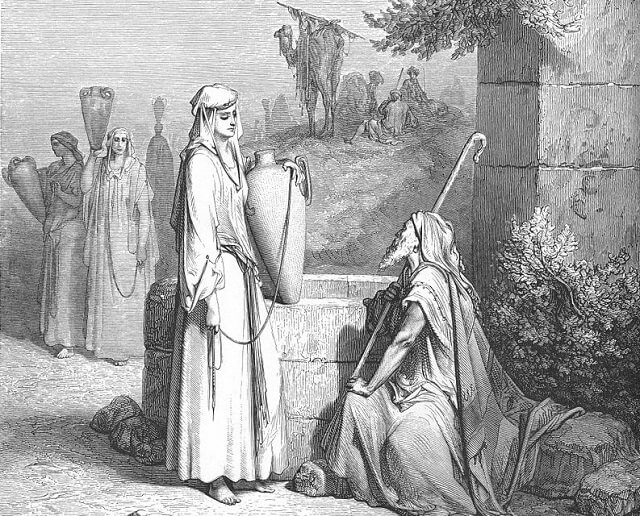Due to this textual anomaly, the Sages made a bold claim: “The conversation of the Avot’s servants is superior to the Torah of their descendants” (Breisheet Rabbah 60).
What does this mean? Is their everyday discourse really more important than the Torah and its laws?
The Lofty Torah of the Avot
In fact, the ‘conversations’ of the Avot, the Patriarchs, were also a form of Torah. This Torah was more elevated than the later Torah of their descendants, as it reflected the extraordinary holiness and nobility of these spiritual giants. If so, why did the Sages refer to it as mere ‘conversations'?
A conversation is natural, unaffected speech. The Torah of the Avot was like a conversation, flowing naturally from the inner sanctity of their goals and aspirations. Holy ideals permeated the day-to-day lives of Abraham, Isaac, and Jacob to such a degree that these ideals were manifest even in the everyday discourse of their servants.
The Torah of their descendants, on the other hand, lacks this natural spontaneity. It is a thought-out religion based on willed-holiness, a compendium of detailed rules and regulations calculated to govern all aspects of life. This is especially true for the development of Torah law during the long years of exile, when Torah was limited to governing the religious life of the individual.

Torah of Redemption
With our national return to Eretz Yisrael, we also return to the Torah of EretzYisrael. The generation of national rebirth has no patience for the feeble lights of Judaism as it exists in the exile. The people seek lofty ideals and great deeds. They aspire to build a model society, to correct injustice, and restore the Jewish people to a state of autonomy and independence. There is an inner Divine spirit driving their brazenness, as they reject the paltry lights of exilic Judaism, lights that glow faintly, like candles in the brilliant midday sun.
What will satisfy the spiritual needs of the generation of rebirth? They will gain new life from the comprehensive Torah of the Patriarchs. The daily Shmoneh Esrei prayer makes this connection between the Avot and the era of redemption:
“[God] remembers the Patriarchs’ acts of kindness, and lovingly brings the redeemer to their descendants.”
It is the “Avot’s acts of kindness” and their vibrant, natural Torah that will redeem their descendants in the final generation. The Messianic light will shine forth, and out of the darkness of heresy and denial, a supernal light will emanate from the lofty Torah of the Avot, a Torah of authenticity and greatness which will redeem the generation.
The lofty tzaddikim must recognize this secret. Their task is to combine these two Torahs, that of the Avot with that of their descendants. Then they will reveal a Torah crowned with honor and strength, beauty and splendor.
(Sapphire from the Land of Israel. Adapted from Orot, pp. 66-67, by Rav Chanan Morrison)


No comments:
Post a Comment